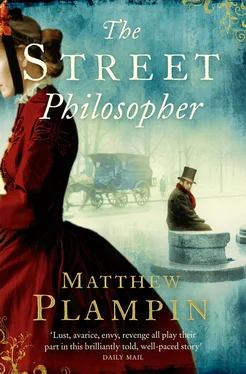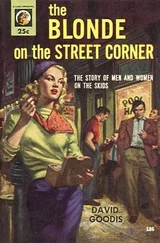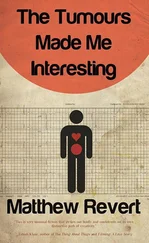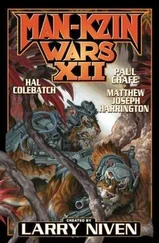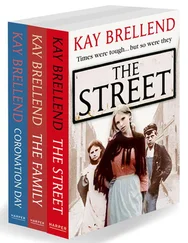‘I must say, madam,’ Mr Kitson murmured, ‘that for the daughter of a labour-lord, you are quite the radical.’
This was the first indication he had given that he knew who she was, and in whose premises he sat. ‘So I am told. Often by the labour-lord himself.’
He smiled again. Mr Kitson and I are forming quite an acquaintance, Jemima thought. She willed further delay upon her coach, thinking that she could happily sit exchanging views with this man for the rest of the evening. Something, at least, had been salvaged from a tiresome day. Across the room, the clerk cleared his throat loudly and turned over a page in his ledger.
The Star’ s street philosopher began to offer his own opinions on the Exhibition. As he spoke, his ironic nuance fell away and was replaced with warm conviction, making Jemima feel frostily cynical by comparison. For him, the Exhibition was the first in a tradition, the harbinger of a new age: a popular art exhibition, staged for the country at large. Gone would be the days of art being solely an attribute of privilege. With this exemplar, he claimed, the exclusive galleries of old would have an egalitarian counterpoint, and the fruits of mankind’s finest endeavours would be available to all.
Jemima was familiar with this position, and frankly thought it a little idealistic; but had never heard it outlined with such eloquent sincerity. ‘You feel strongly on this subject, Mr Kitson,’ she observed. ‘One might reasonably infer that you had been forced to spend time in these exclusive galleries you so despise.’
This dispelled Mr Kitson’s enthusiasm completely. He stared down at the office’s elaborately tiled floor. ‘I was an art correspondent on a London paper before I came to Manchester,’ he admitted. ‘I attended countless exhibitions–every one closed to the broad mass of society.’
‘A London paper? Which one?’
Mr Kitson did not look up. ‘The Courier .’
Now Jemima was intrigued. This man had left one of Britain’s most prestigious journals, famous for the global scope of its correspondence, to write for the Manchester Evening Star , which was barely known even in the next county. ‘Why, I take the Courier myself! I have probably read your work, Mr Kitson. I shall have to search through my old issues as soon as I arrive home. May I ask why you left?’
He became evasive, volunteering only that he had become fatigued with life in the capital and the vagaries of the London art world. There was something in his manner that made Jemima realise that this man had fled to Manchester. But what could be so bad as to make one look for refuge in the nation’s workshop, writing street philosophy for a penny paper? There was an explanation here well beyond the fatigue that Mr Kitson claimed–although he was certainly a man on whom fatigue had preyed.
Jemima peered back into the room, at a row of framed prints on its far wall. ‘Do you know, I believe there are some illustrations from the Courier in this very office. From the Russian War–the opening stages of the campaign, before the paper’s coverage became so controversial, and—’
Mr Kitson sprung to his feet, startling Jemima and the desk clerk and almost knocking over his chair. He strode over to the prints and made a rapid survey of them, stopping before one that depicted the battlefield of the Alma.
‘Mrs James, why on earth does your father decorate his sales office with such images?’ The question was almost accusatory. He did not turn from the picture as he asked it; his earlier curtness had returned with his distraction.
Jemima remained quite calm. She directed a restraining glance at the clerk, who seemed ready to fetch a constable. ‘For all your familiarity with Manchester society, Mr Kitson, you street philosophers clearly know little of our city’s business affairs. Charles Norton’s meteoric rise is one of the great tales of the town. And the late war played a crucial role in it.’
She rose from her seat, arranged her shawl around her shoulders and crossed the office to stand beside him. His eyes shone as if filmed with tears; his face was impassive, though, and he was gripping one hand with the other to stop them from shaking. They looked at the Courier print, at the hillside strewn with the dead, and she told him how her father had found his fortune.
Two and a half years ago, at the start of 1855, Charles Norton had been the master of one of Manchester’s smallest foundries–the continuing survival of which was a source of some wonderment to the city’s community of businessmen. When he had been approached by William Fairbairn of the mighty Fairbairn shipbuilding and engineering company and asked if he would be willing to travel out to the Crimea to conduct a preliminary survey for a personal project of his, Charles had been in no position to refuse. The favour of the Fairbairns meant much in Manchester, and there was a clear implication that further work might result from this expedition. Whilst there, however, in a decidedly uncharacteristic demonstration of charm and initiative, Charles had befriended several remarkably senior figures in the Quartermaster-General’s department. The result of this surprising gregariousness was a sudden flow of contracts for the Norton Foundry.
‘First there were spikes for the Crimean railway; then heavy buckles for horse artillery; then more buckles, this time for the cavalry, many thousands of them; then, after the war, buckles for the police, for fire engines and coal carts, for cabs and coach-makers and hauliers of all descriptions. The Foundry has enjoyed a late flourishing, expanding to more than ten times its original size. Strong, affordable Norton buckles on every saddle, belt and harness in England–that is my father’s stated goal.’ Jemima smiled wryly. ‘Last year Punch christened him the Buckle King.’
Mr Kitson had managed to tear his attention from the print, and was suppressing his agitation by listening to her account with an absolute focus. ‘That I saw,’ he said.
Jemima’s smile faded. ‘Of course, a price was exacted for all this good fortune.’
The street philosopher looked at her inquiringly.
‘My husband, Mr Kitson–Anthony James. He died of cholera at Balaclava.’
Her companion flinched, the fine web of lines around his eyes tightening. ‘I am sorry, madam. I was aware that you had lost your husband, I confess, but I had no idea that…’ His voice trailed off. ‘Please accept my apologies.’
Jemima waved this away. ‘You were not to know, Mr Kitson. The circumstances of Anthony’s death are hardly common knowledge. And I have received enough apologies, sir, and enough pity, to last me several lifetimes. The truth is that my husband was quite determined to go, and would not hear otherwise. He was my father’s immediate subordinate at the Foundry, and considered his presence on the expedition vital to its success.’ Her voice quickened slightly. ‘There was a great fashion for it, do you not remember, amongst a certain type of gentleman. They rushed out to the Crimea with a boyish zeal, hungry for adventure, as if it was all nothing but larks.’
Mr Kitson said nothing.
Bridles jangled outside, followed by a coachman’s cry; a lantern flashed across the office window. The carriage had finally arrived from Norton Hall. The desk clerk, no doubt looking forward to solitude, darted out of the door and began berating the coachman for his tardiness. Their time together was fast expiring.
Jemima sighed, putting a hand to her brow. ‘Oh, do forgive me. I sound as if I am still mired in events well over two years past.’ She looked at him. ‘I have very much enjoyed our conversation this evening, Mr Kitson.’
He inclined his head. ‘As have I, Mrs James. My thanks again for the kind invitation.’
Читать дальше
